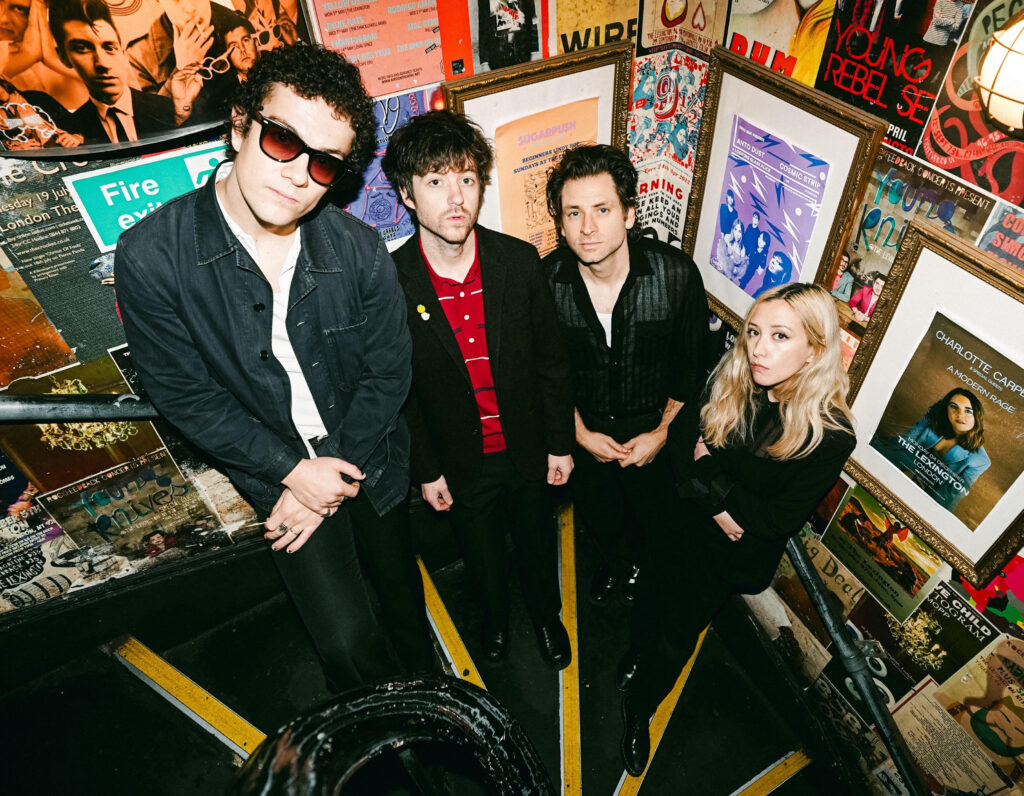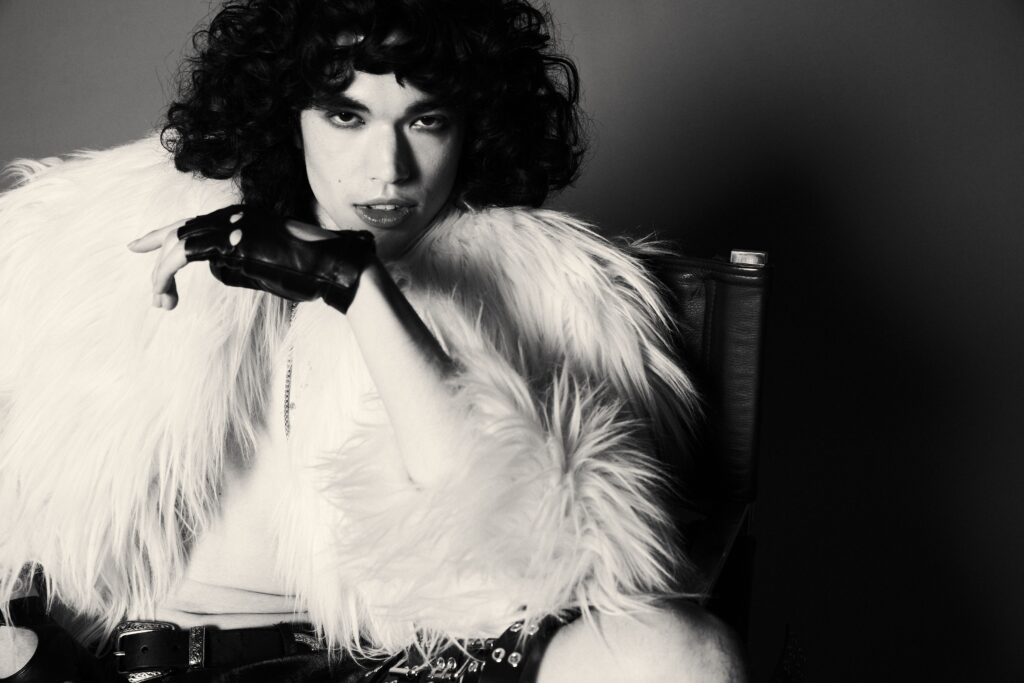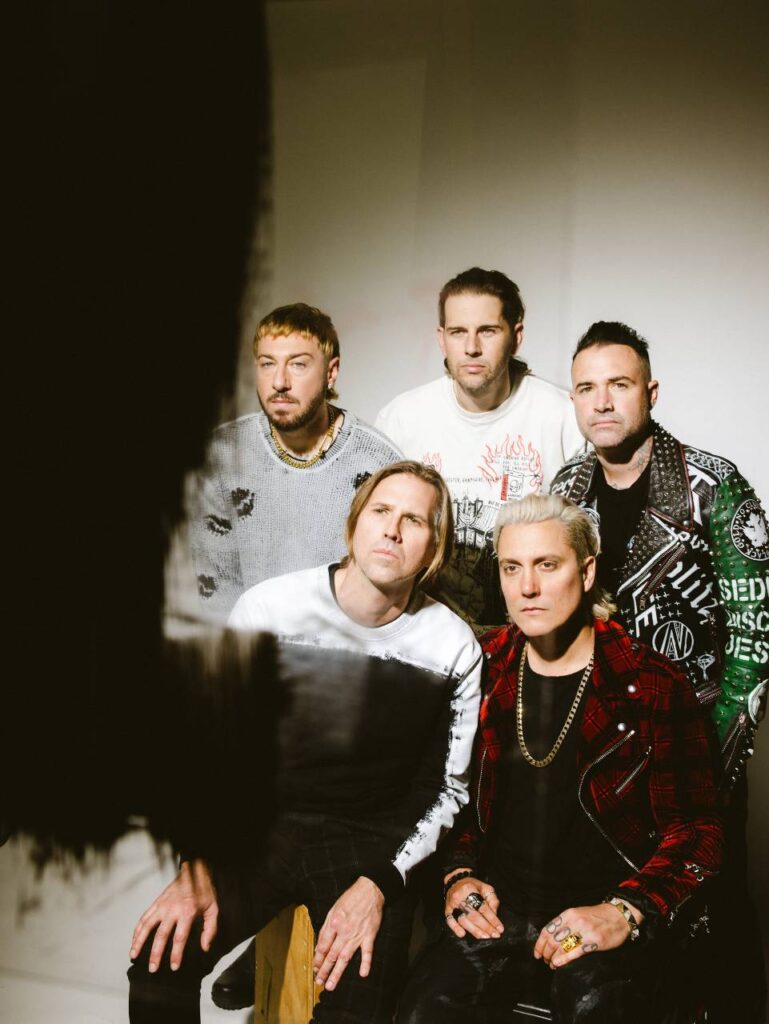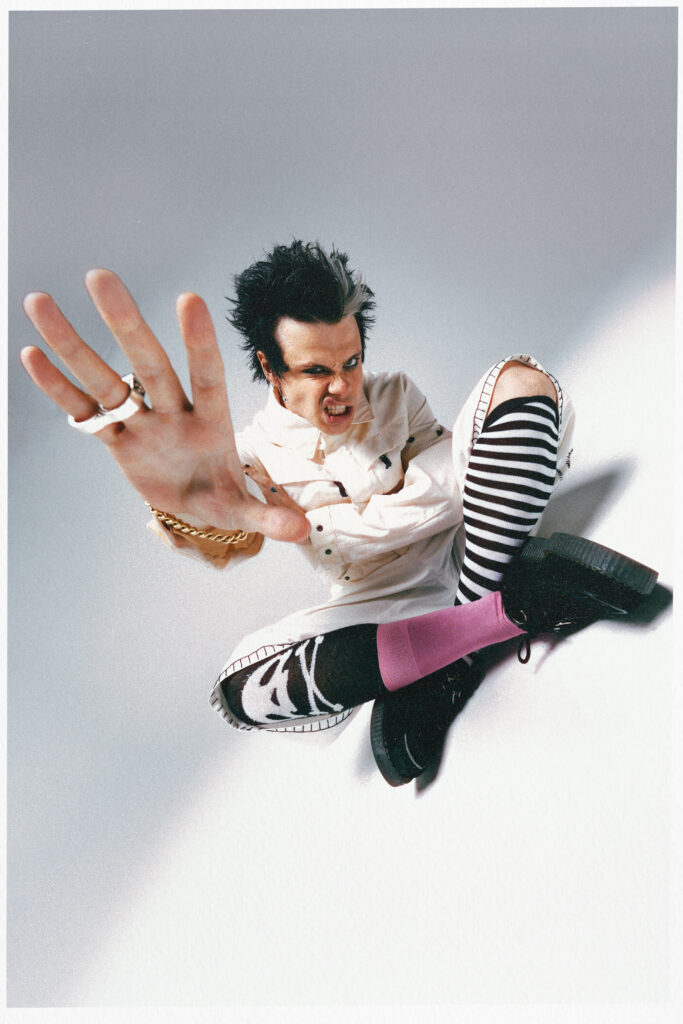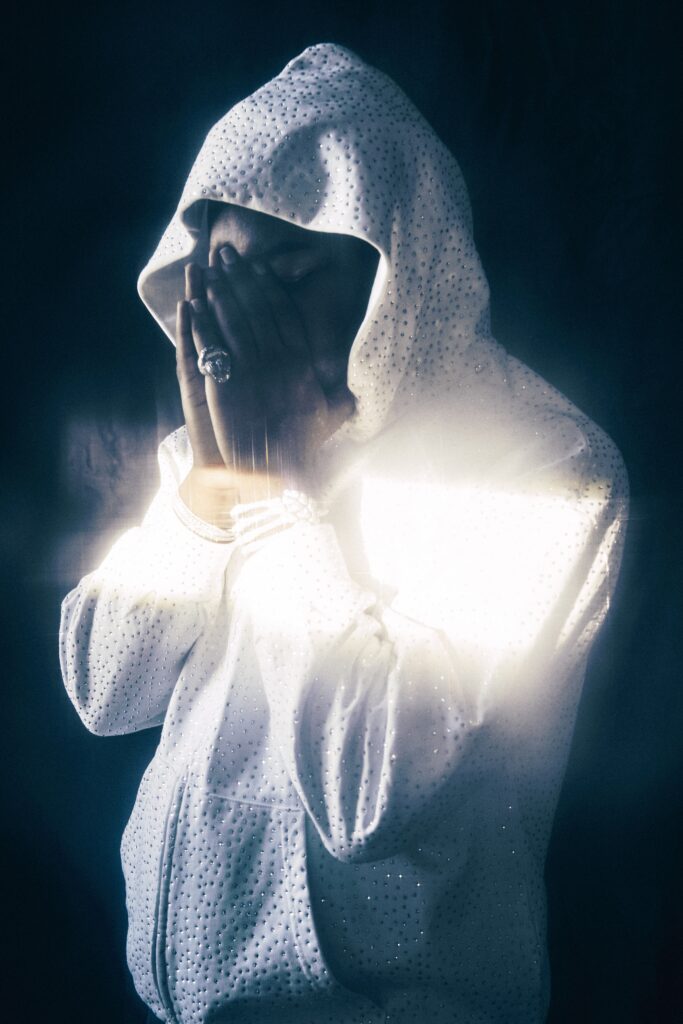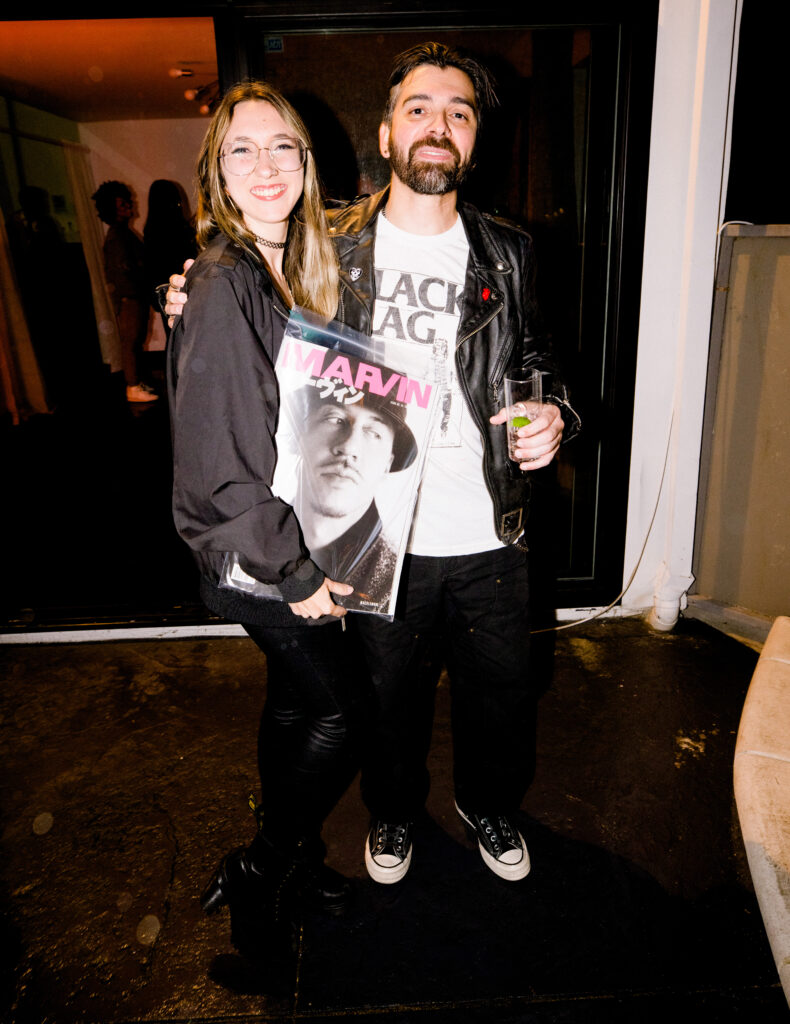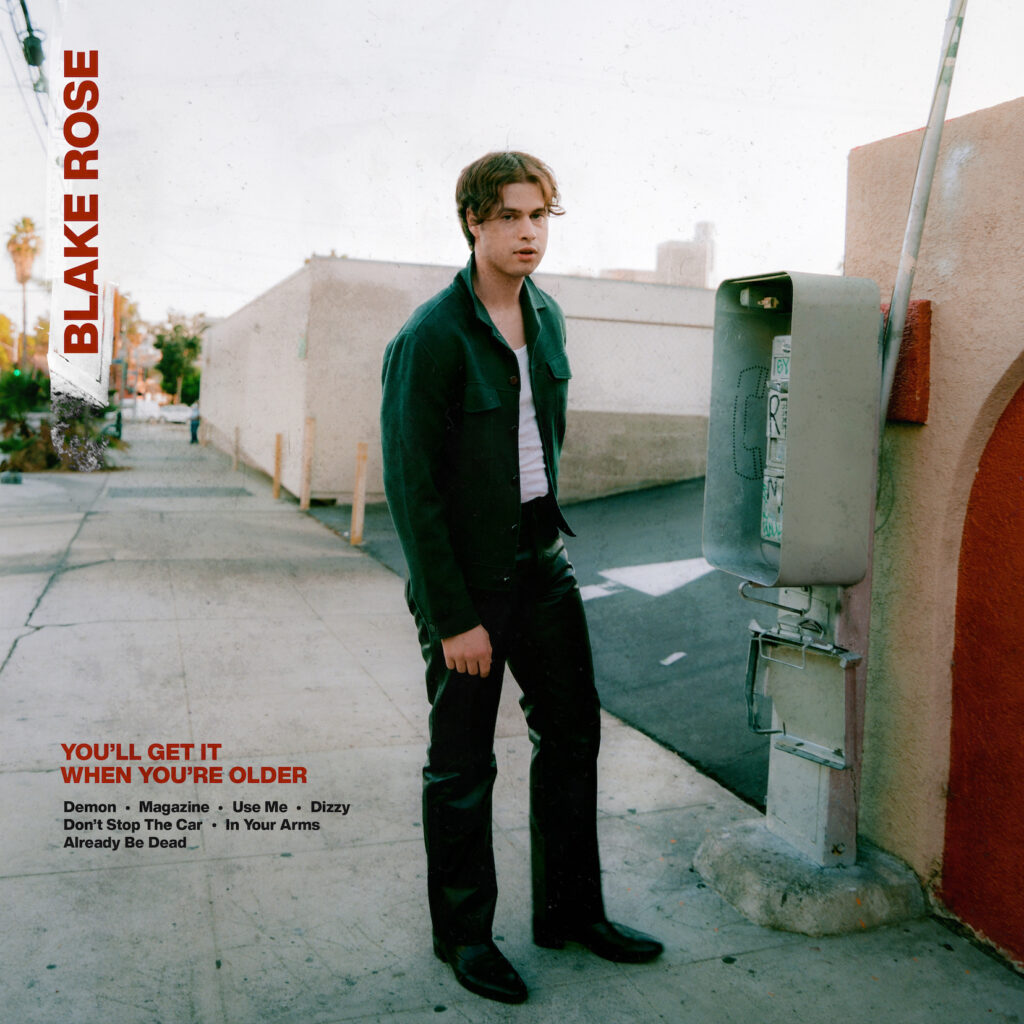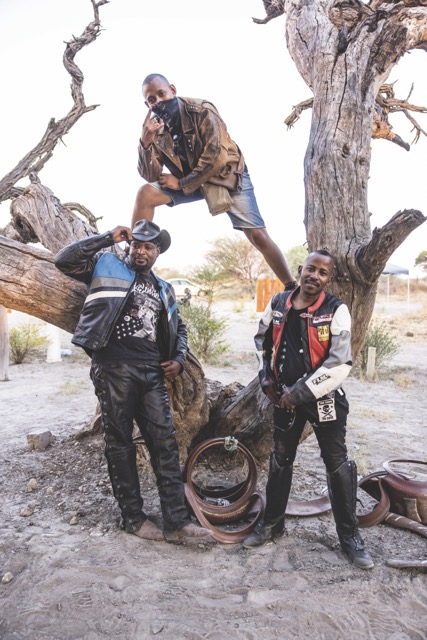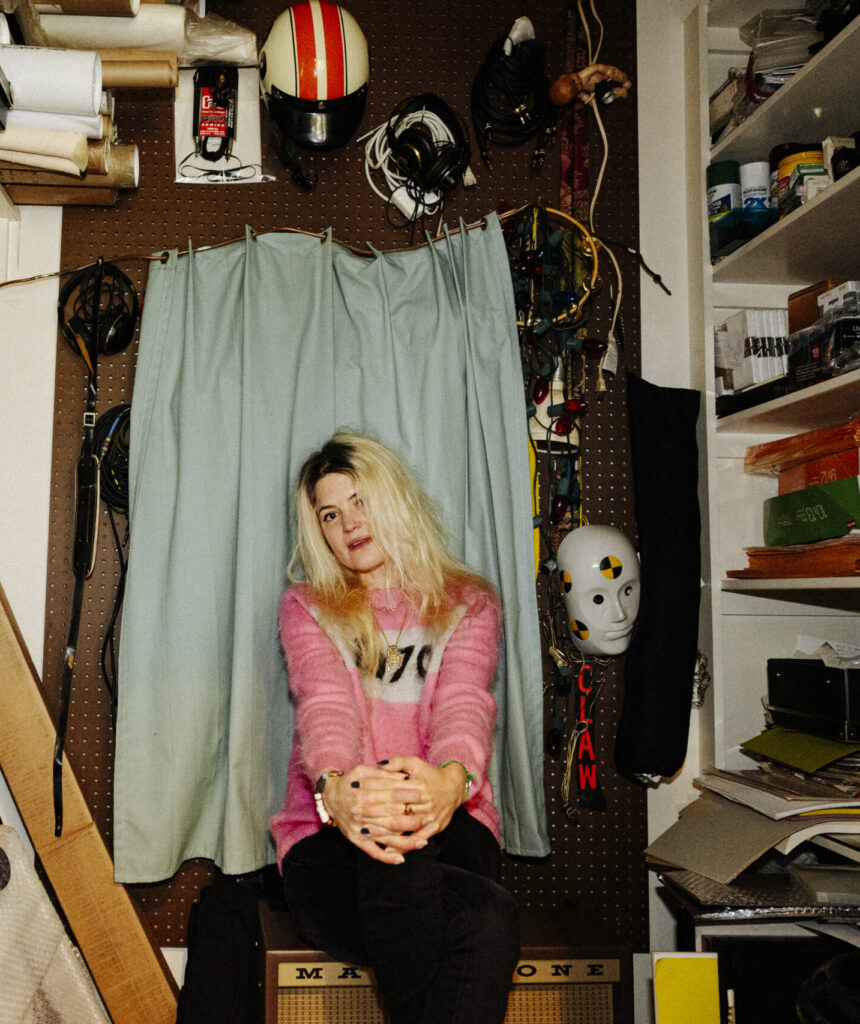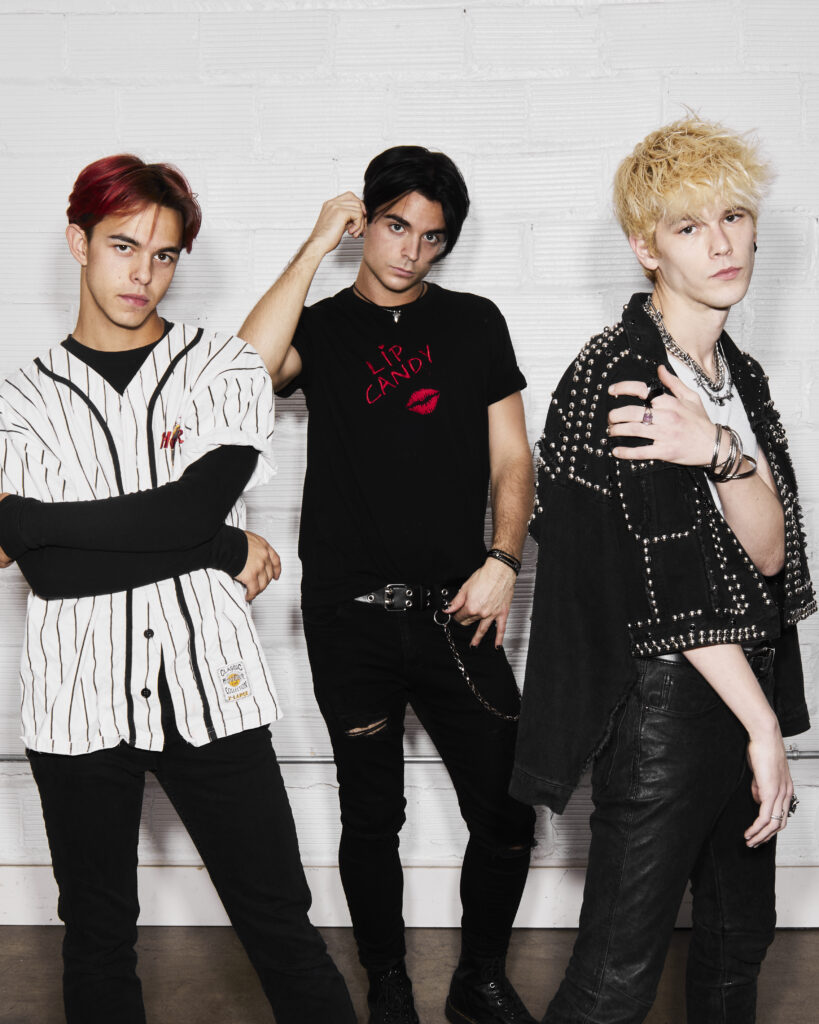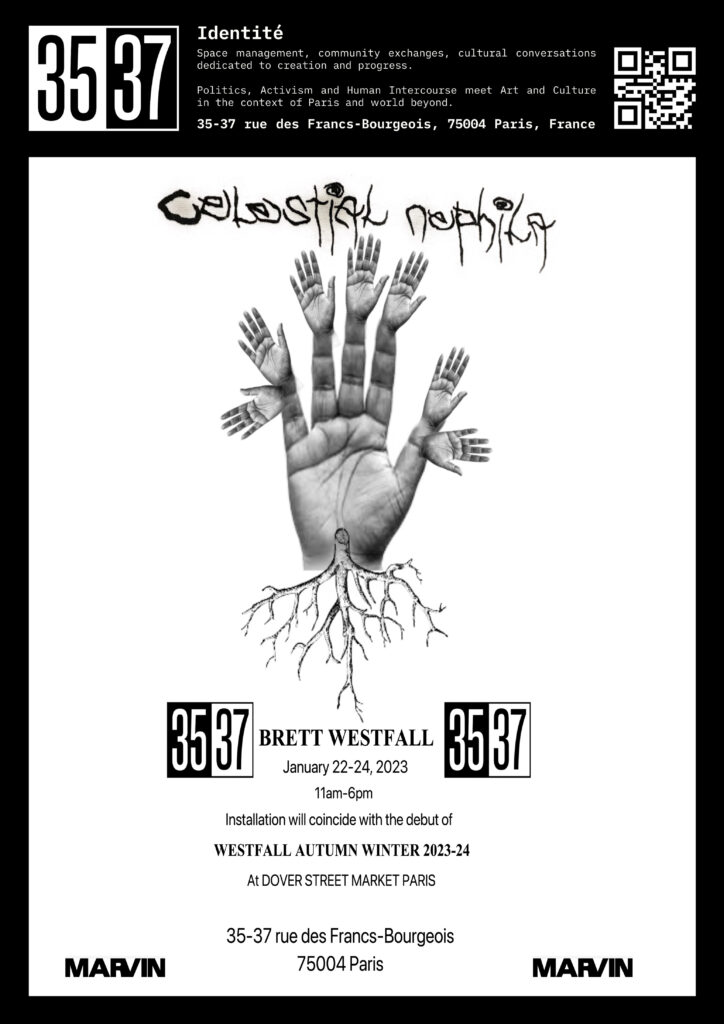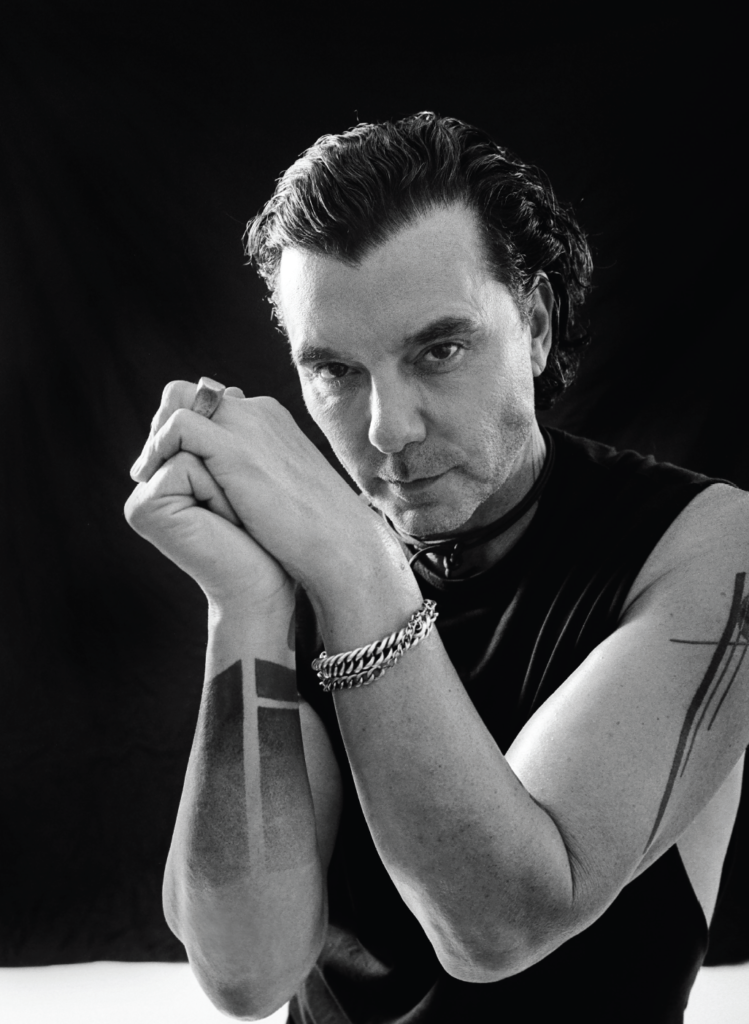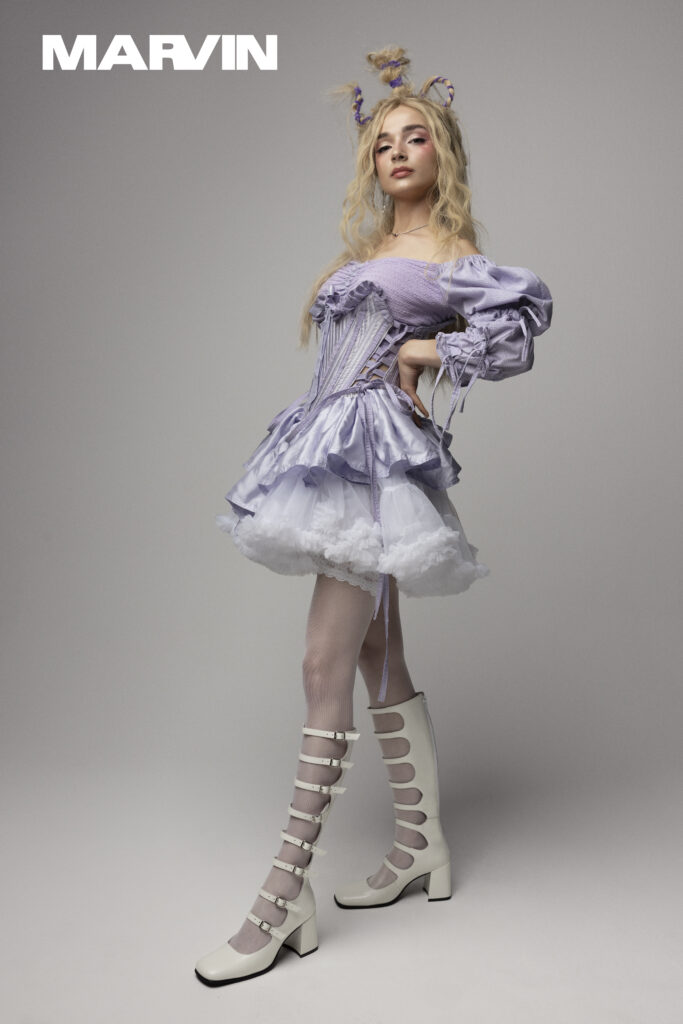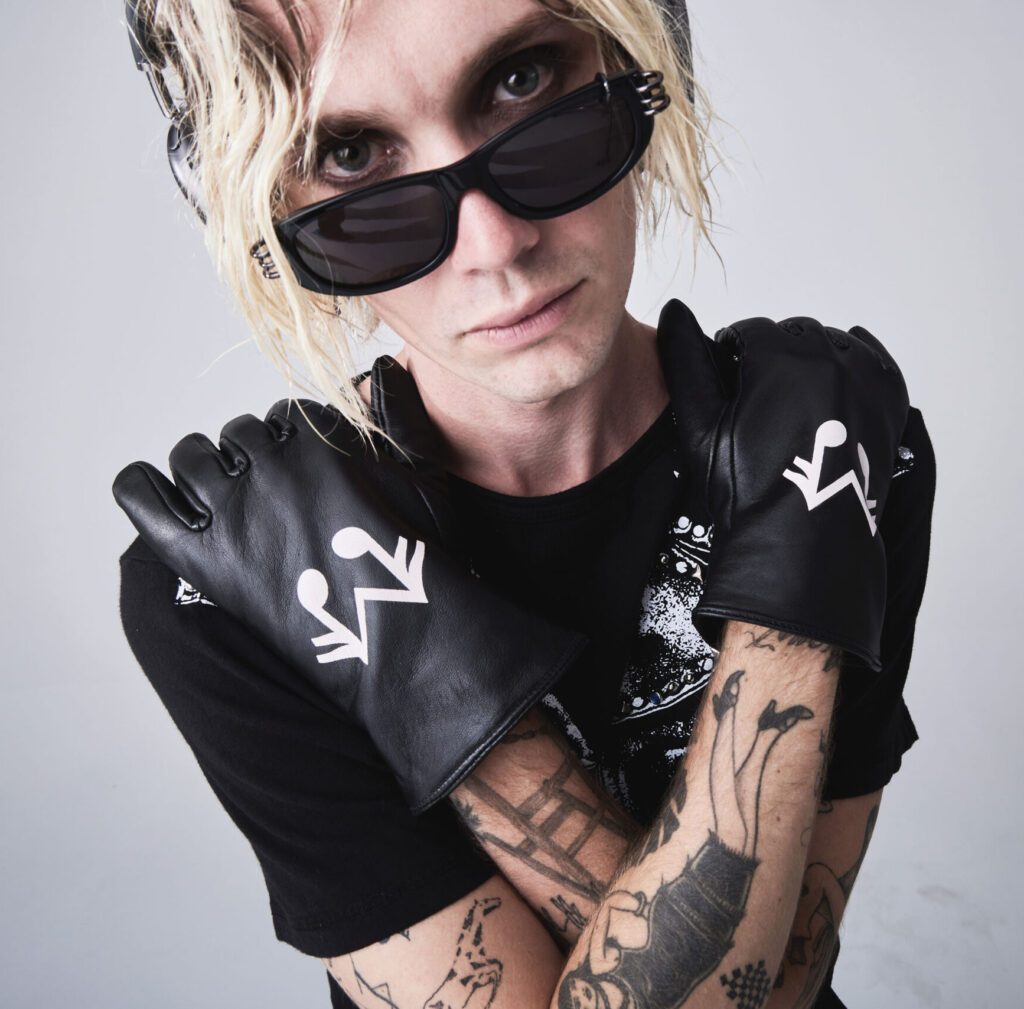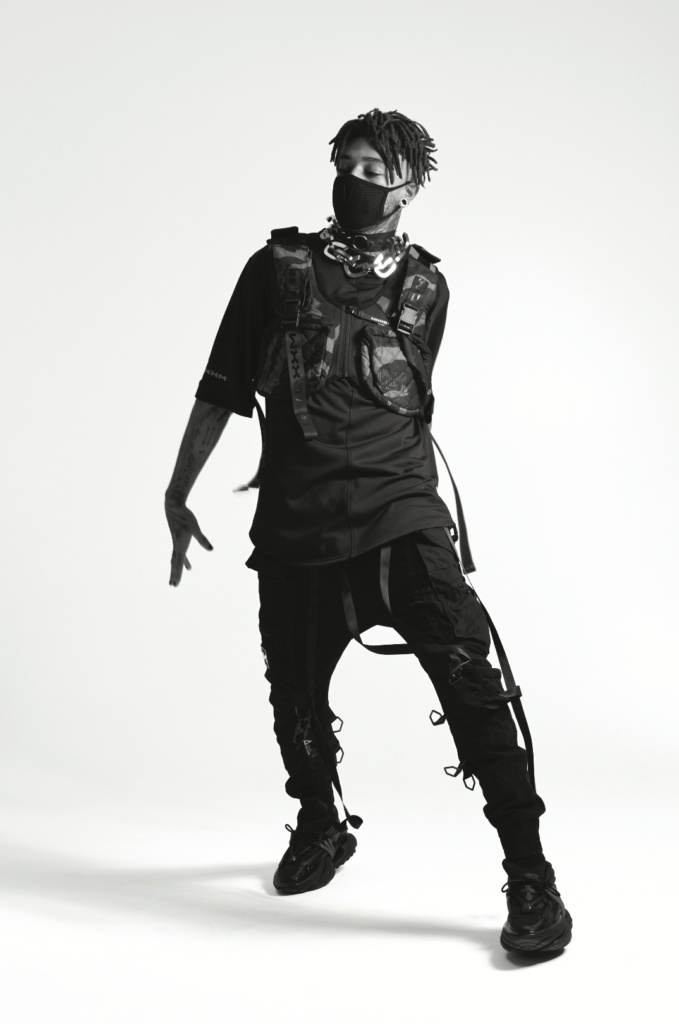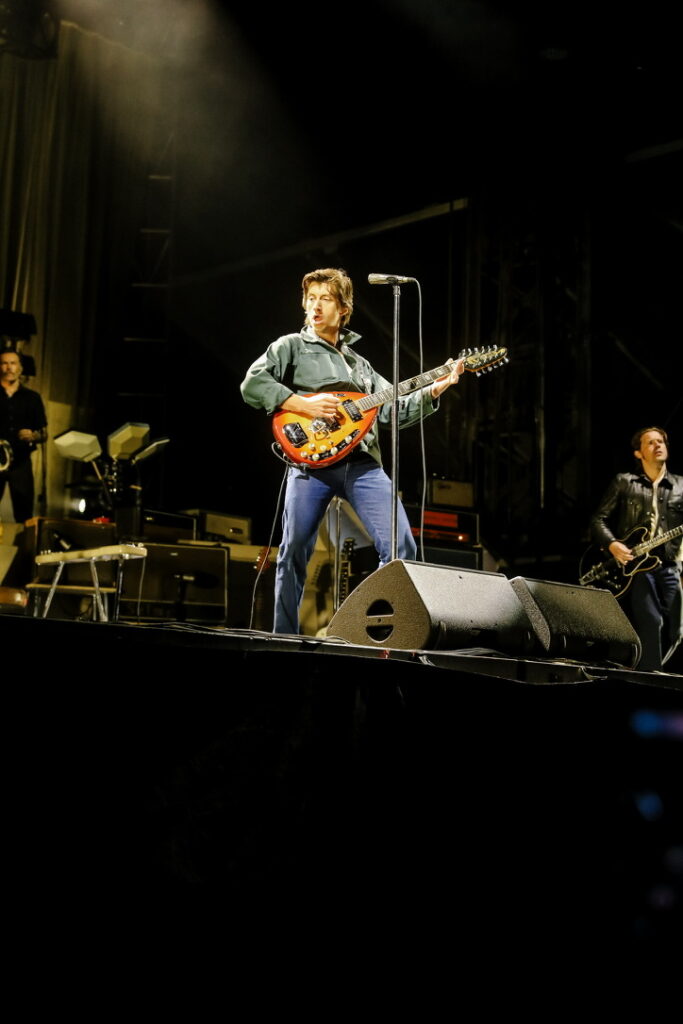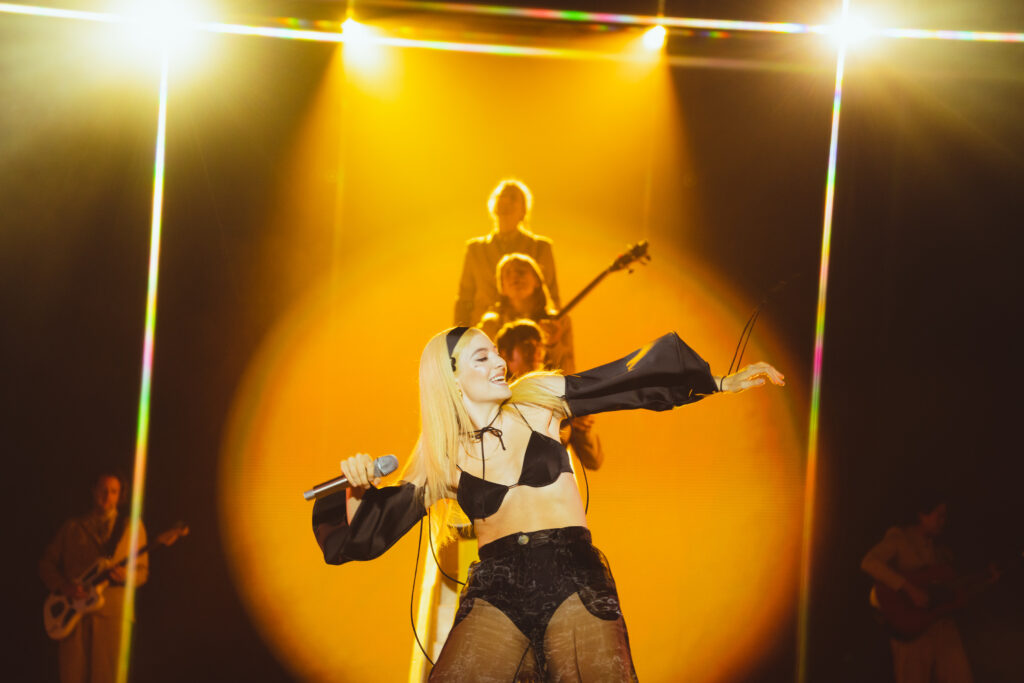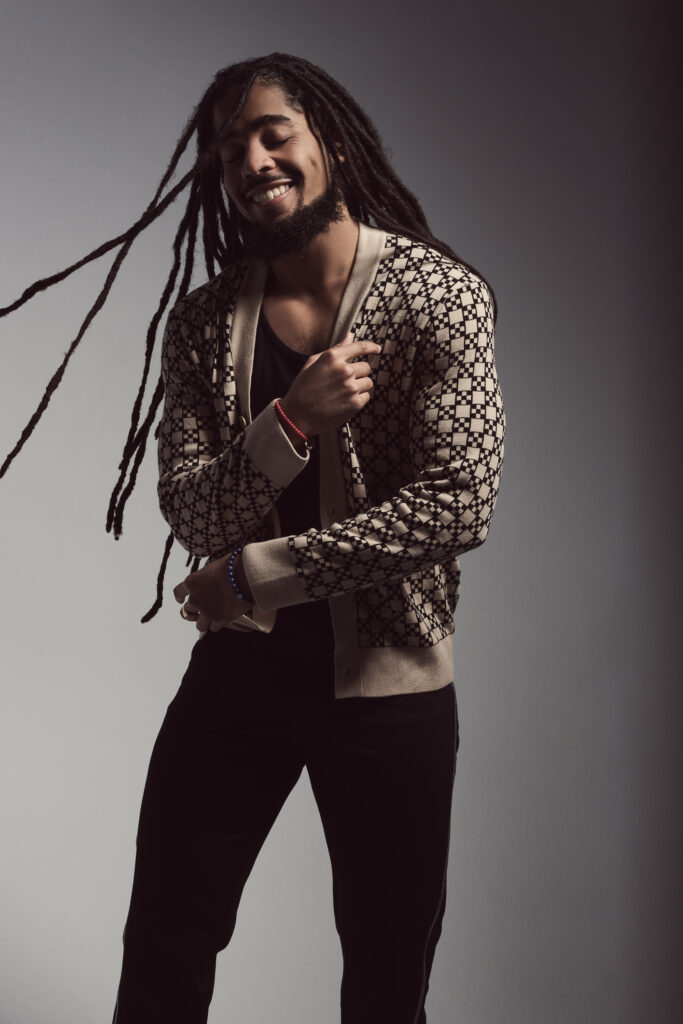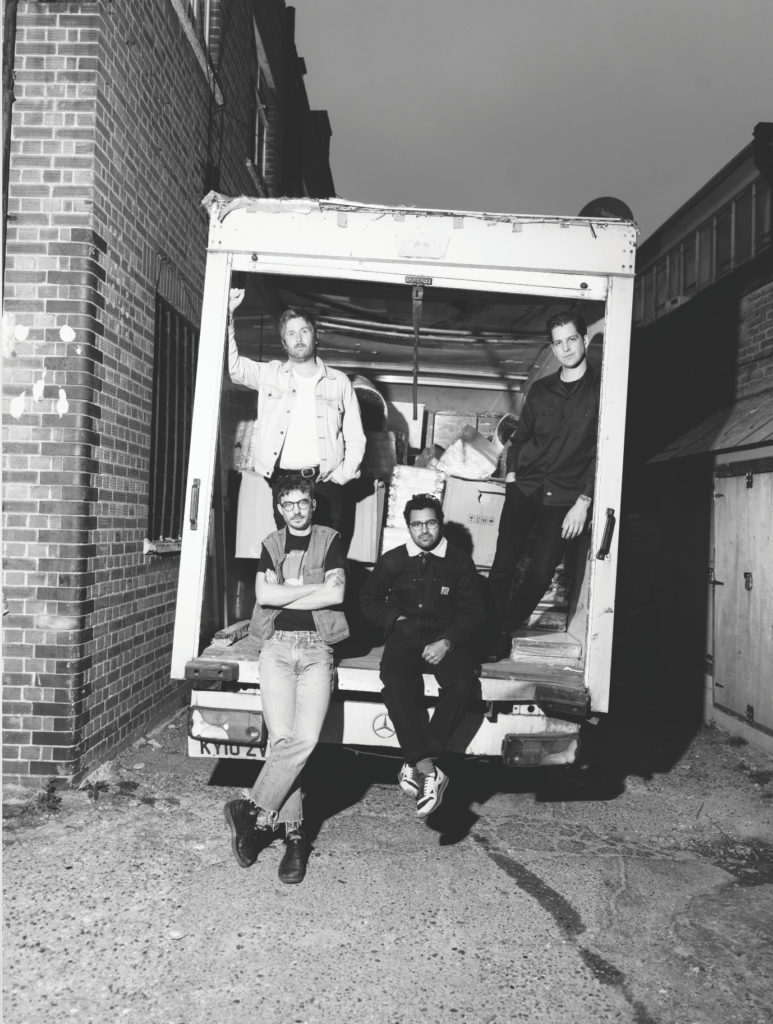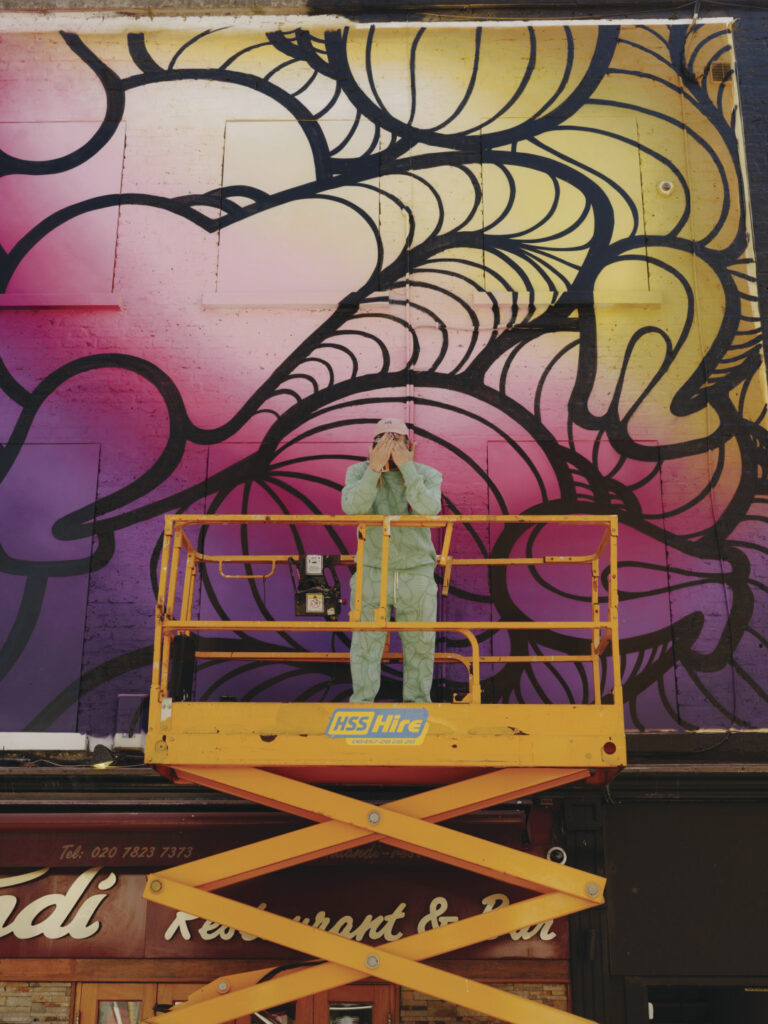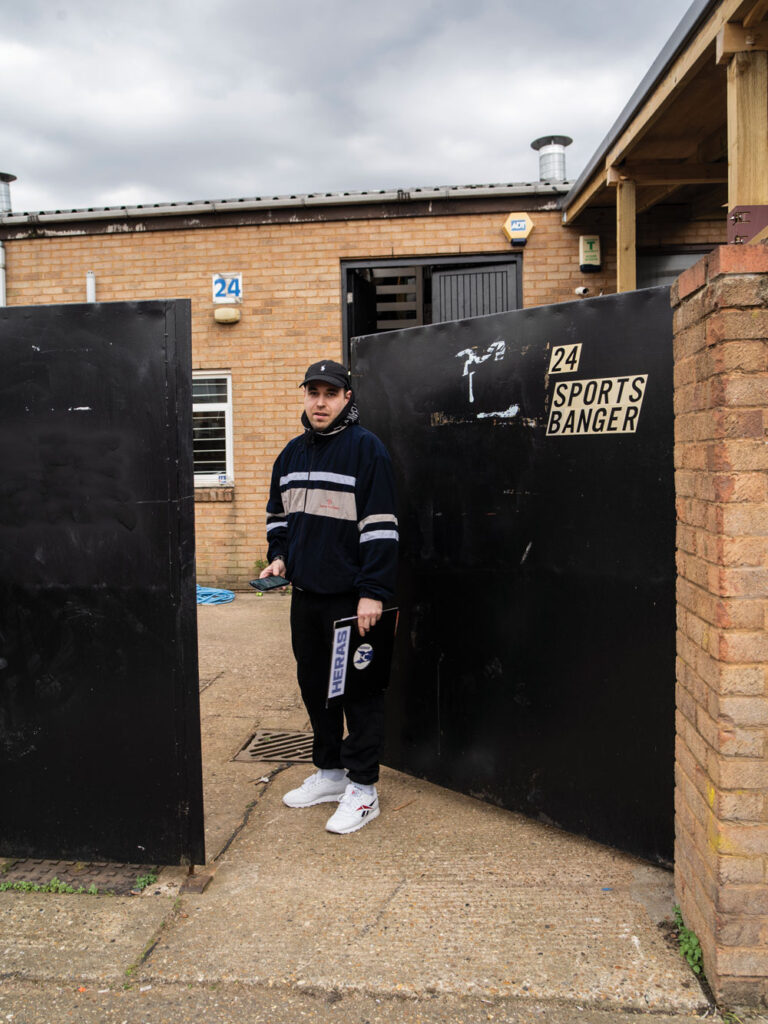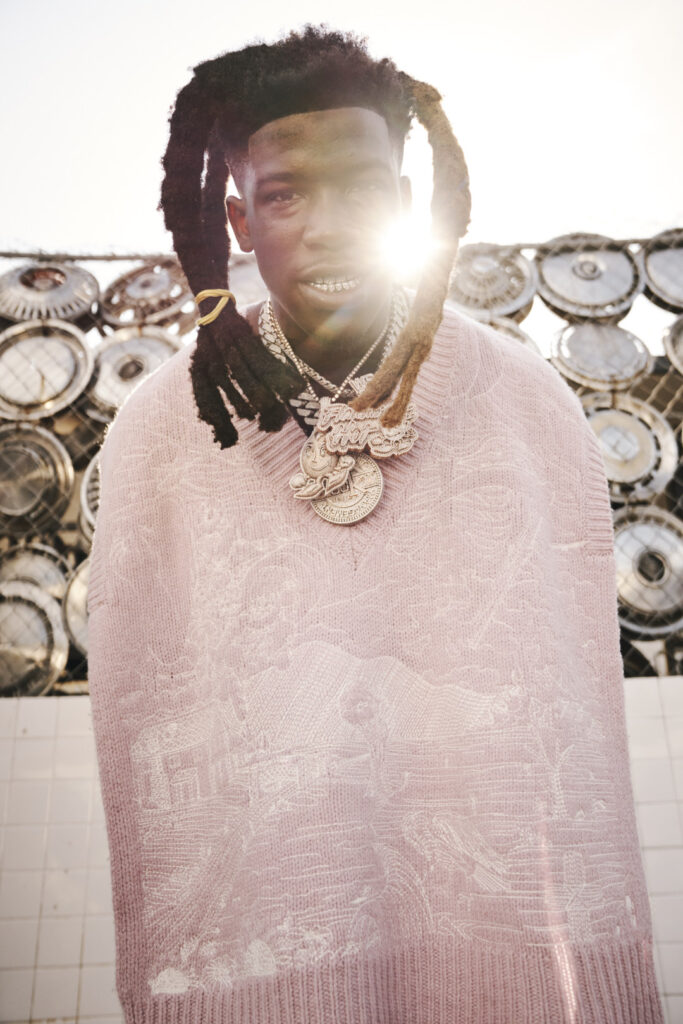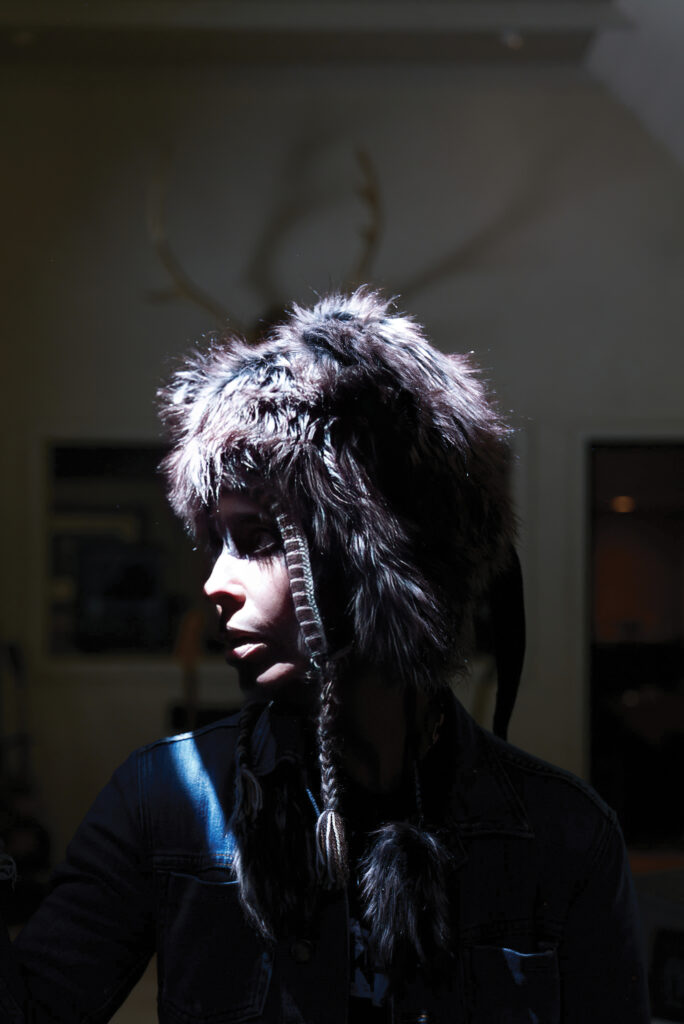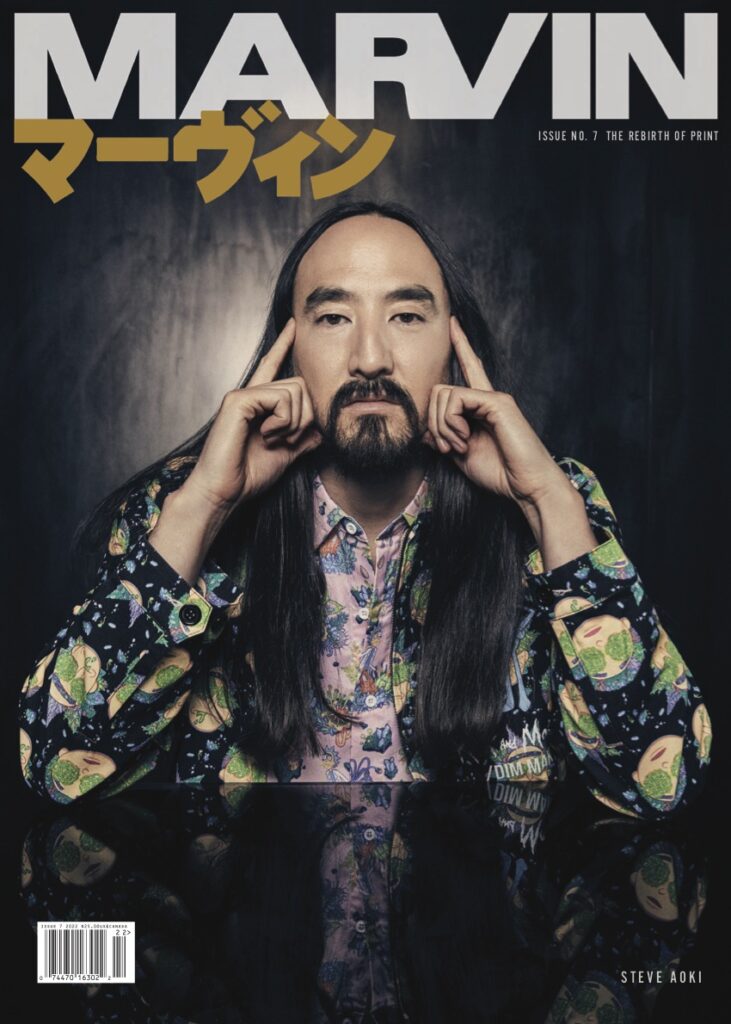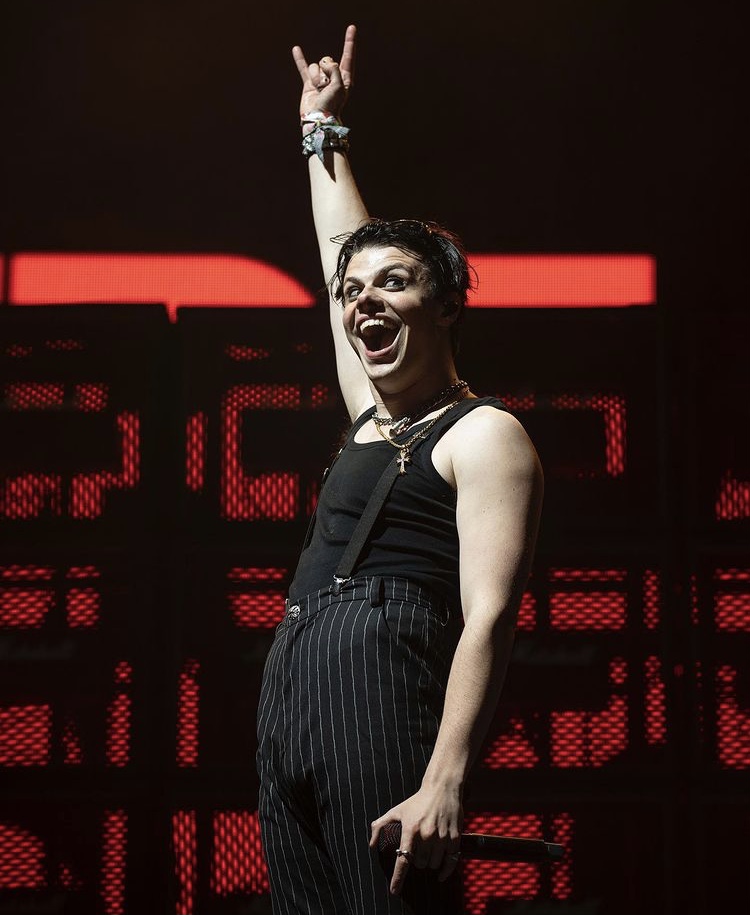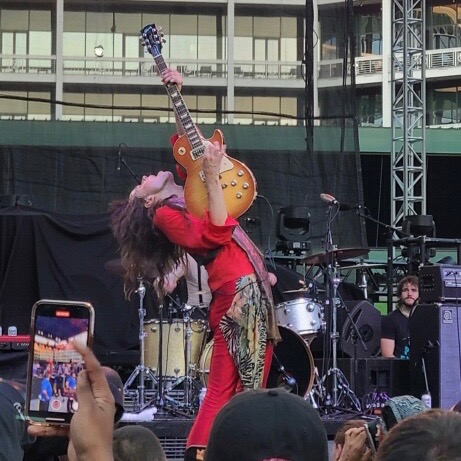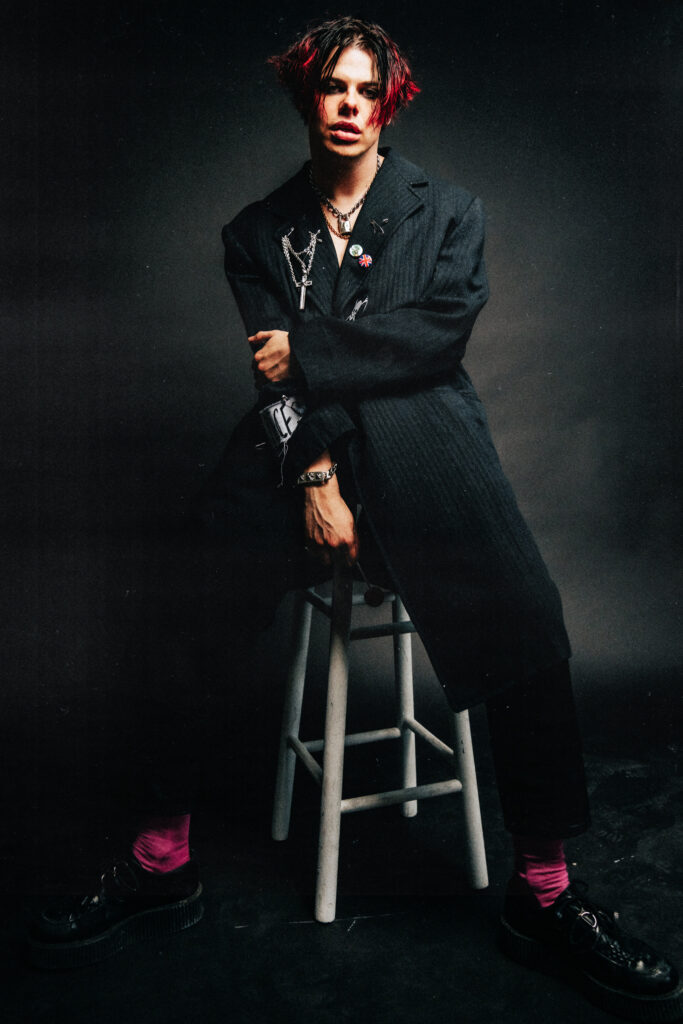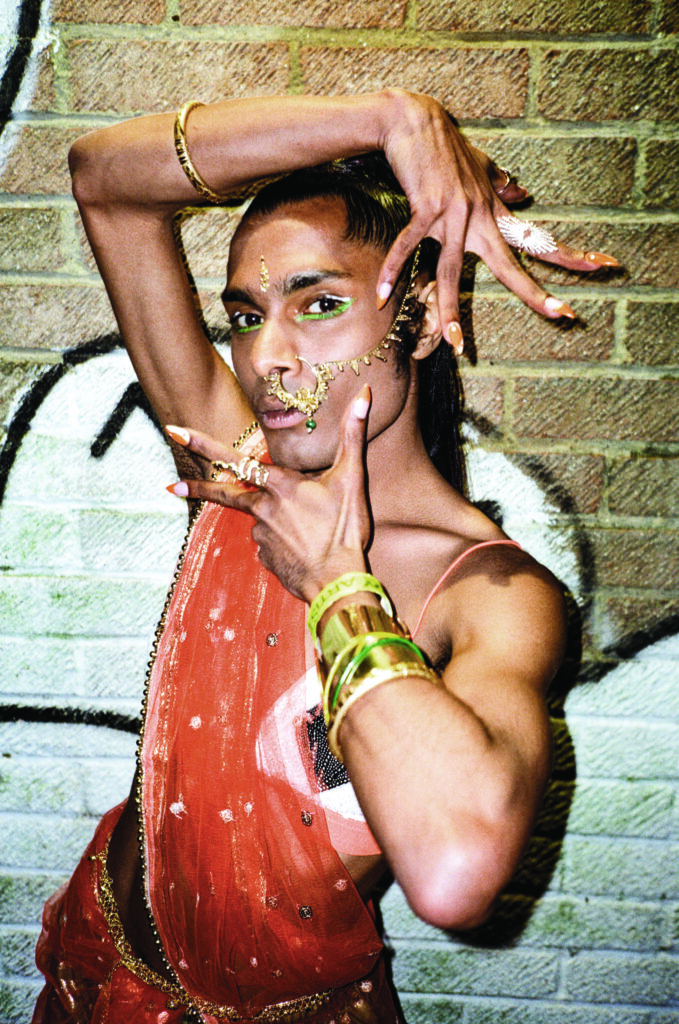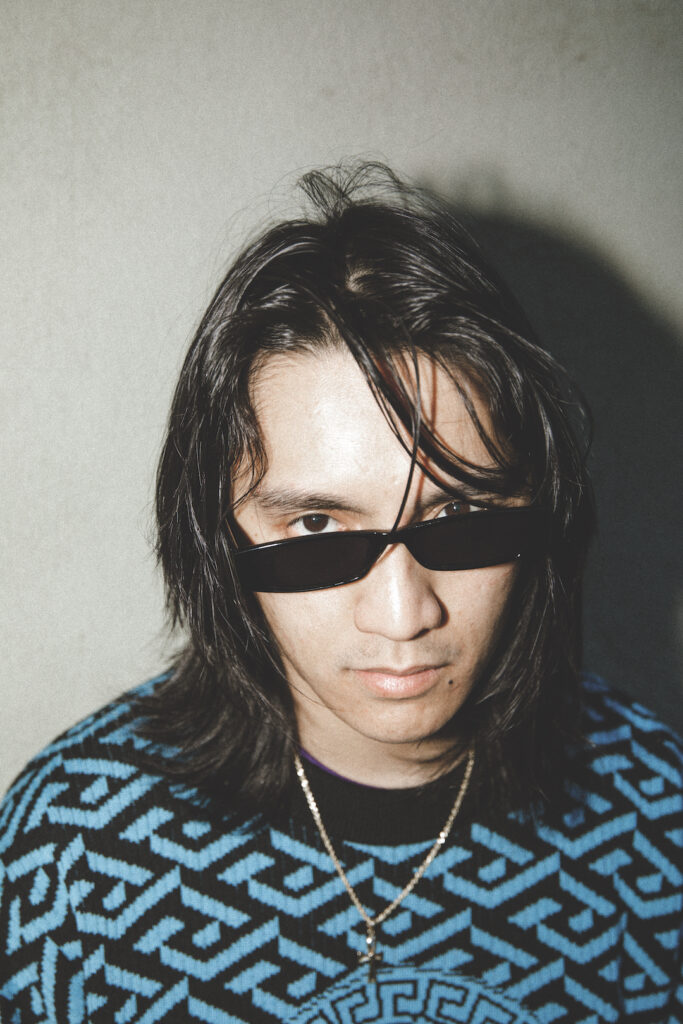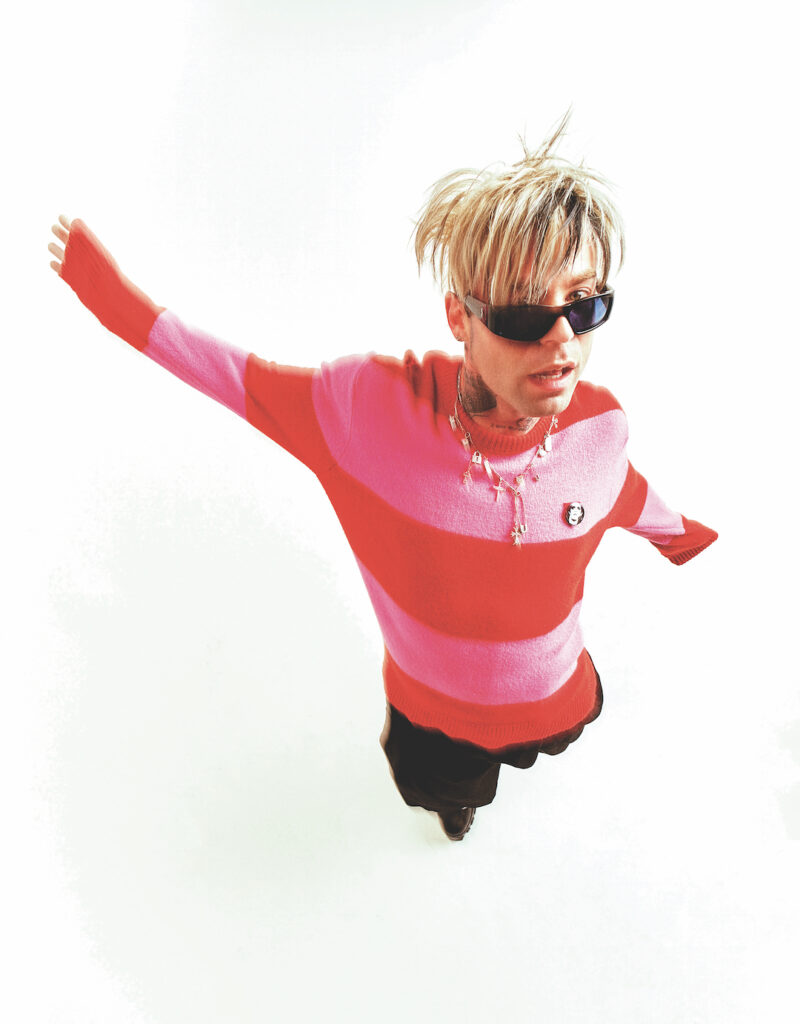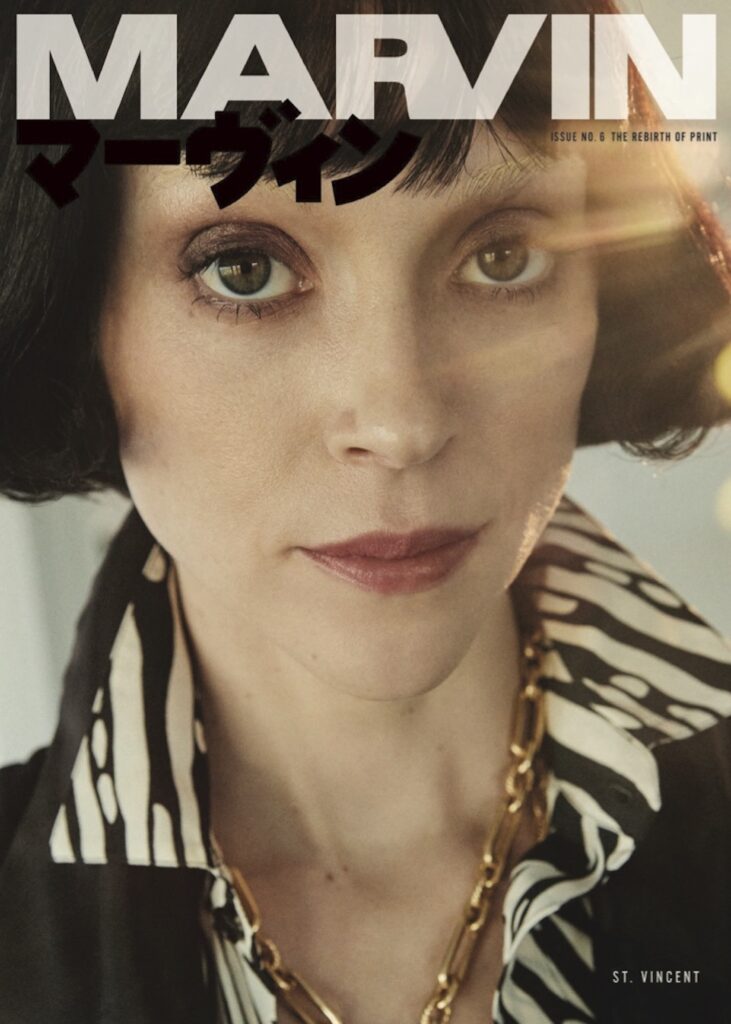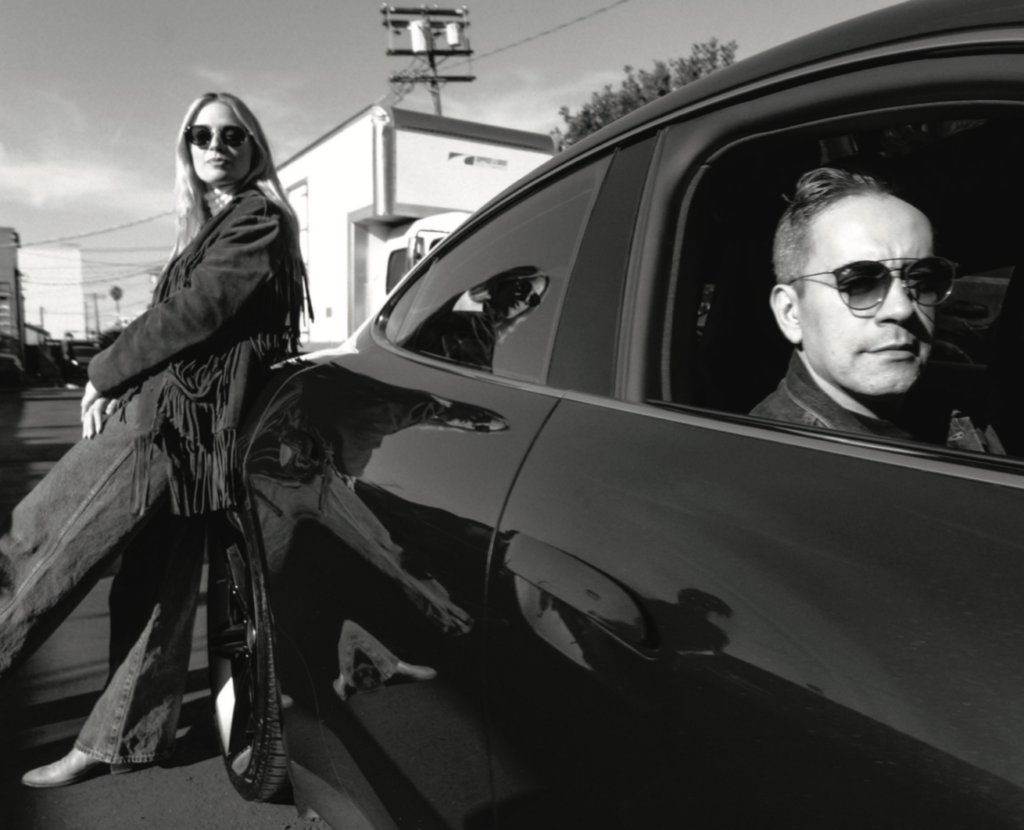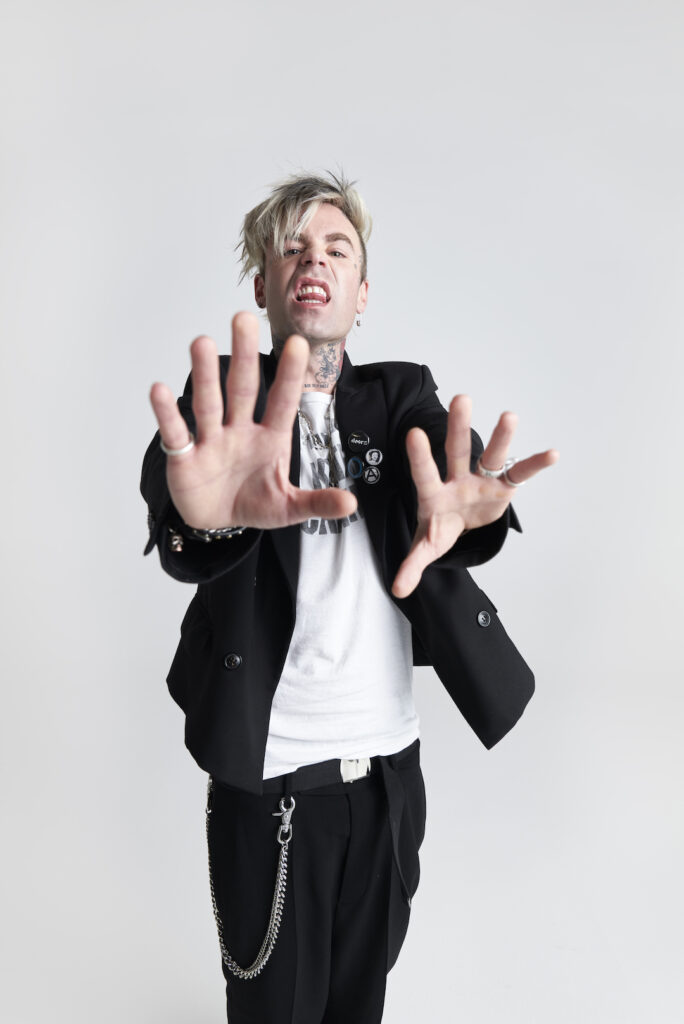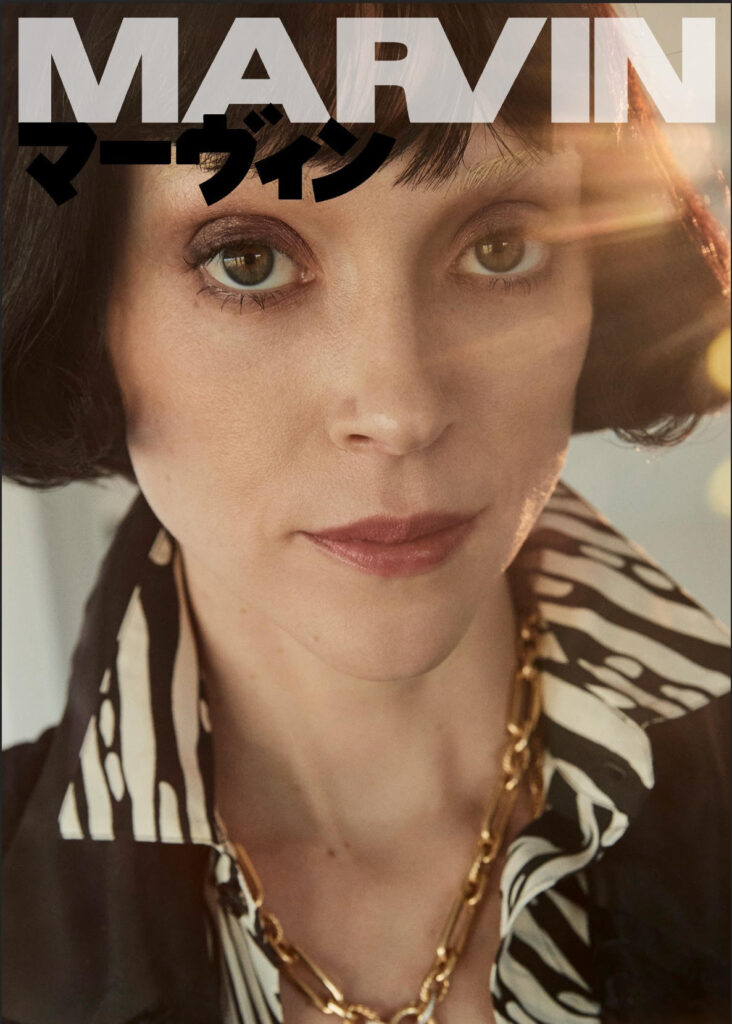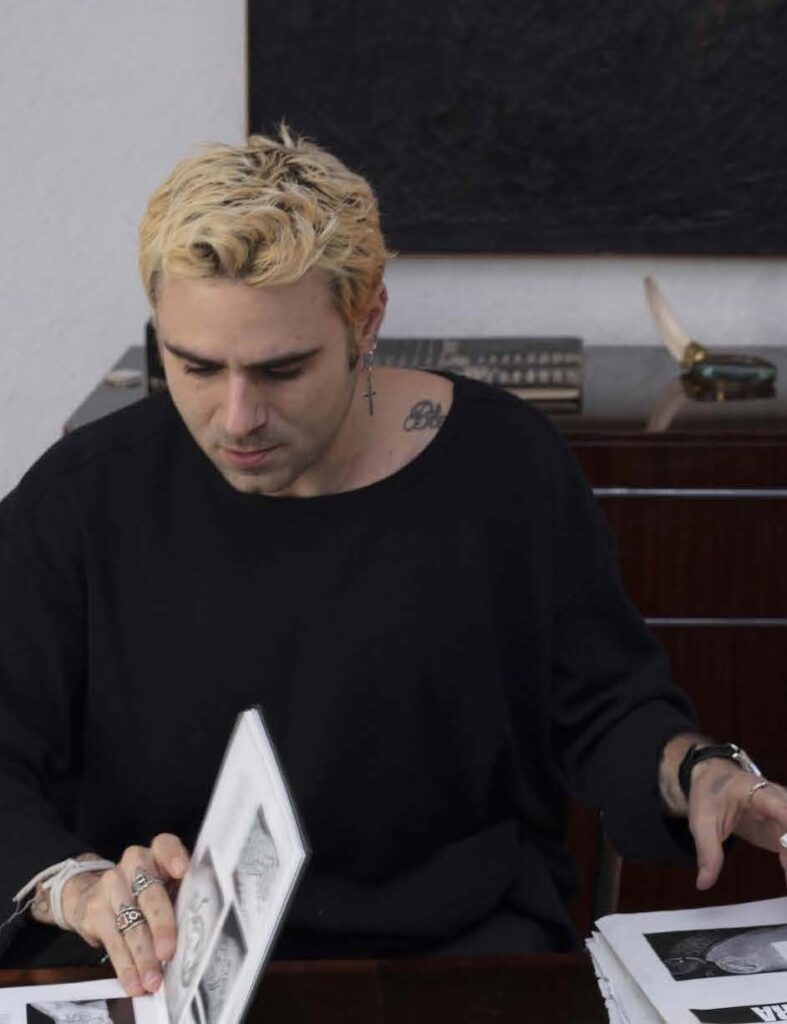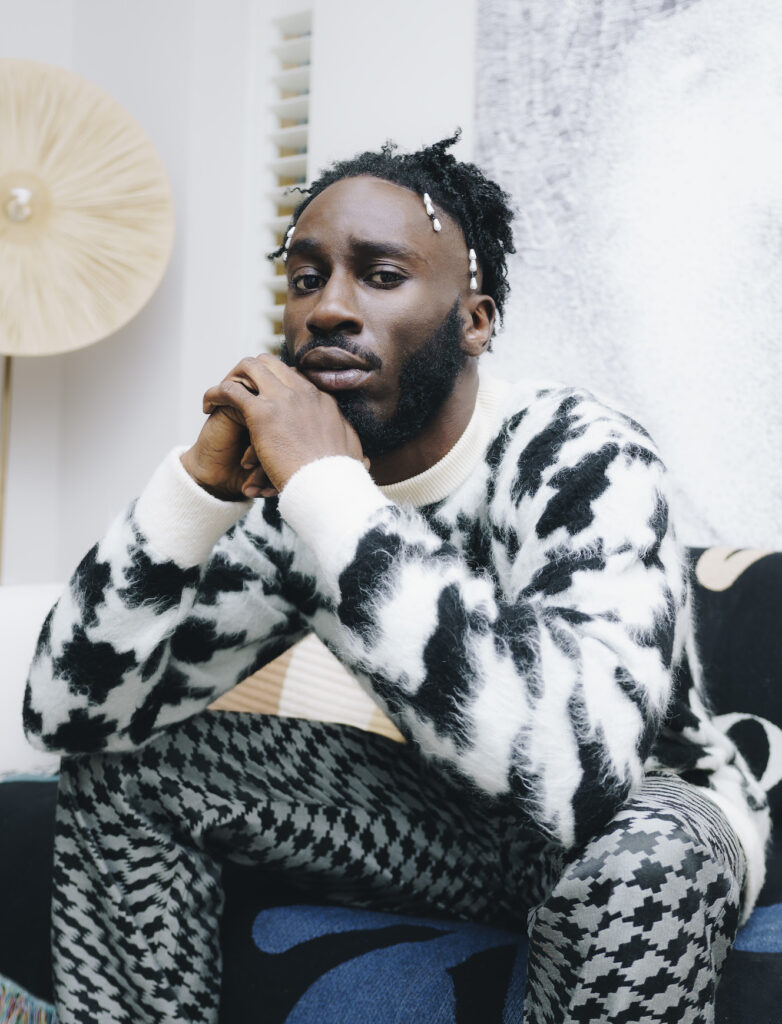British Rock Duo Royal Blood Talk Personal Growth and Getting Back to a Raging, Sweaty Mess on the Dancefloor
Photography by Dan Wilton
Much has been suggested about the brave new world we might inhabit shortly, with optimists predicting an era of hedonism to rival the roaring twenties. We’re expecting (wishing for?) riotous club nights, wild parties and the explosive return of live music. And no one is more excited about a return to the stage than the British rock duo, Royal Blood.
Not just because they can finally tour Typhoons, their ebullient third album, the launch of which has been delayed due to “world events”, but because it’s their danciest music to date. And the people, well, we really need to dance. Or mosh. Or a weird combination of the two.
“It’s our failed attempt at a disco record!” jokes Mike Kerr, Royal Blood’s lead singer, as he and bandmate Ben Thatcher join MARVIN for a chat from their studio, close to the city of Brighton, UK. Their unofficial tagline around the new record is to call it “AC/Disco”, but honestly, that’s massively underselling the punchy cross of driving beats and the throb of scuzzy bass that inches into the rockier end of Daft Punk (R.I.P.) or Justice territory.
“I think rock has always been danceable,” Mike points out. “You know, it was called rock and roll for a reason. We used to go out dancing to it. And I think as time has gone on, all the girls left and the guys got smellier and smellier. We’re just trying to return it back to when it was cool.”
A shift in sound is only natural for a band who are now almost a decade into their music. In 2014, their first album, Royal Blood, became the fastest-selling rock debut on the UK charts, and swiftly saw them clinching a Brit award (Best British Group), a Kerrang! Award (Best British Newcomer) as well as nominations for a handful of MTV Europe Music Awards.
They followed up with 2017s How Did We Get So Dark?, another slice of blistering home-grown British rock, this time a little moodier, stamped with a fighter-jet energy that seems to belie the fact that there’s just two people creating this immersive sonic boom.
Four years on from album number two, and a lot has changed, most notably a move towards more thumping, dance-tinged beats. “This wasn’t a conscious, sit-down-let’s-create-a-new-sound decision,” says Ben. “It was more something that we just kind of let the brakes off and let it happen.”
Mike adds: “I think before we perhaps censored ourselves a little bit, because it didn’t feel like it fit into our little ‘rock box’. Everyone seemed to be enjoying our music, so when something’s going well, it really can give you more apprehension towards trying new things. We experienced that in the second record, whereas on this one we decided actually there’s this whole other language to our music that we haven’t expressed.”
While the new album sees Royal Blood turn their hand to producing, they also returned to working with Josh Homme – a long-time champion of the guys since they first toured together in 2017 – and Paul Epworth, the producer who was at the heart of the dance-rock crossover movement of the mid-aughts, with bands like The Rapture, Bloc Party and Maxïmo Park.
Homme has become somewhat of an unofficial mentor to the band. Mike says, “We’ve toured so extensively with Josh and [Queens of the Stone Age] and we learned so much from them. It felt like a masterclass. You know how people say, ‘if you’re the smartest person in the room, you’re in the wrong room’? When we tour with them it’s like, ‘we’re in the right room’. He was the first person we began to get properly challenged by, but it was so welcomed, because we truly respected him.”
There’s always the pressure that a changing sound might turn off some of their die-hard fans though. Was that a worry for them? Mike says: “We still had the kind of echoes and the fear from album two, like, what will they think? And trying to appease other people’s expectations. Josh gave us the confidence to go and do something that is truly our own and said: ‘Fuck what anyone else thinks. There’s only two members to your band, your fans aren’t in your band, you make the decisions’.”
It’s a very fair point. If there was doubt around a new evolution for the band in 2019, it came at a time when there was another seismic shift happening within the duo. In particular Mike, who took the life-saving decision to become sober after his hard- partying lifestyle began to get out of control.
He says, “There were many points where I began to think, maybe this kind of lifestyle doesn’t have a very good ending. You have to hit your own kind of rock bottom a few times. I think for me, I was sick and tired of being sick and tired.”
With lyrics in the new album touching on mental health issues (My thoughts becoming parasites in Typhoons and I let my demons take hold and choke on me on Trouble’s Coming) and with Mike previously discussing his “recurring mental nightmares”, how much of this was exacerbated by life on a pretty much nonstop tour?
“From the outside perspective, being in a band is incredibly glamorous,” says Mike. “And don’t get me wrong, it’s my dream job. So, it can feel like you don’t have any right to kind of feel any negative emotions when you’re in that. But it’s a very isolating experience. You are away from your friends and your family and you’re living a life of 98% just travelling, and then performing.
“With that lifestyle there’s a reason to celebrate every night. But then suddenly you’re hammered every single night. I was accumulating habits which kind of snuck up on me. I felt like a frog in the water, when the water is heated up to boiling and the frog doesn’t know it’s dying. I was living in a fog; existing in a haze. There were these huge moments in our career, and I was like, I don’t remember it—I don’t remember playing Brixton Academy. I started to realize I wasn’t present.”
If you’ve ever picked up a rock n roll autobiography, you’ve learned it’s a recurring theme for many musicians. The tolls of touring; the euphoric highs of performing then the crashing lows of empty hotel rooms mean at some point, most performers end up drinking heavily or dependent on drugs as a crutch. But the realization of addiction usually comes much later for these musicians – on their fifth album or third wife, perhaps. In Mike’s case, it sounds like he’s been incredibly fortuitous in recognizing that he was sinking into this lifestyle, and so early on in his career.
“My vision for stopping was thinking, this isn’t going to change. I thought, ‘fuck realizing this in 20 years’, when we’ve made three terrible albums and I’m fat and still trying to fit into leather jackets from 2017. It’s such a cliché as well, so boring and predictable. Everyone knows where this is going. I saw it as I have a chance to save the music and save myself.”
It was after a particularly heavy session in Las Vegas that led Mike to finally kick the drink. “I didn’t really have a plan. I came back to the studio, and Ben poured me a shot of tequila. And I said I was actually going to take a break for a while. And he went: ‘cool’. And then a week went by and he was like, ‘Do you want a drink?’ And I said, ‘I think I’m alright for the minute’.”
Two years on, he’s still alright with just a sparkling water, thanks. The benefits greatly outweigh everything he’s given up.
“I think after removing that from my life, it took a couple of months to feel like some 10-ton brick has been lifted off you again. You get your health back, you sleep better, your mental health suddenly restores. It’s probably the most important, most amazing experience I’ve ever had as a human being. It’s a pretty profound thing.”
Ben adds: “I’ve noticed a huge change in him, a massive change in everything, all for the better.”
It did come with a side effect, a need to learn to do things over. A whole personal reset: from learning how to socialize without the aid of tequila, to songwriting, which is one of the reasons why the band needed the four-year space between the second and third album.
Mike says: “A year went by from the sessions with Josh. Then another year went by. I kind of had to get my whole life together. I had to relearn how to write songs, as I’d associated everything with drinking. You get so used to it being in your life you suddenly don’t even want to be in a room with people without having a drink.
“If you’re a person who is reserved, isn’t very confident, or is really insecure because you haven’t dealt with how to actually function as a human being on your own without any substances. And then to me a big one is like writing songs. Can you be creative without drugs and alcohol? Even if some of the best music ever made in history was made by drug addicts? There’s a real mind game going on: is this even possible?
“When we’d written Typhoons, that’s when I realized that was bullshit, as these are the best songs we’ve ever made.”
The band have had to explore other aspects of letting off steam in lieu of all-night post-gig parties. Ben says that he’s turned to his love of soccer: “Watching soccer is my haven—it’s always on and it’s just relaxing, it’s a green screen, which is peaceful in itself.”
Meanwhile, Mike has become a certified climber despite having a fear of heights (“I didn’t realize I was scared of heights until I think I was about 50 foot up. I’d say it’s conquered my fear now.”) He’s also big into running and boxing as well swimming and scuba diving, handy when living in the coastal city of Brighton.
This seaside setting has also had an interesting impact on the pair in other ways. “I think being by the sea is important, if that’s where you grew up,” says Mike, who was brought up in Worthing, while Ben hails from a few miles down the coast in Rustington. “I have to say whenever we go to a new town or city, I have to know where the ocean is, in which direction that is.”
“I also think that the drive to and from the studio has been weirdly influential over the music,” says Mike. “I’ve never really been sure about whether the environment affects music you’re making or if that’s a pretentious thing. But I think looking back, either I’ve applied meaning to it in hindsight or it did have an effect. There’s this great drive along the seafront and on the way back the sun would be setting, and we’d be listening to the demos or listening to the songs, and every time the songs would always be developing. I felt like there was this kind of cyclical nature to it all.”
The fiery colors of the setting sun over the blue-grey English Channel are certainly evocative in the unexpected album opener, the moving piano track, “All We Have Is Now”, and strong tones have bled into the rest of their music. Mike explains: “In a world that was very black and white, we wanted some color to come out of this because we wanted some musical medicine for ourselves. I wanted to make music that would make us kind of be an antidote perhaps to what was going on in the world at the time.”
As we all dream of a world where we’re no longer living under lockdown, Royal Blood paint a compelling picture to hold on to, but, as Mike points out, the music is meant to be enjoyed in a raging, sweaty mess on the dancefloor somewhere: “Playing live is really the DNA of the band – without it, our band doesn’t make sense.”
Ben adds: “Wouldn’t it be great if the first gig back was everyone at Glastonbury Festival? That’s the dream isn’t it?” @royalblooduk

